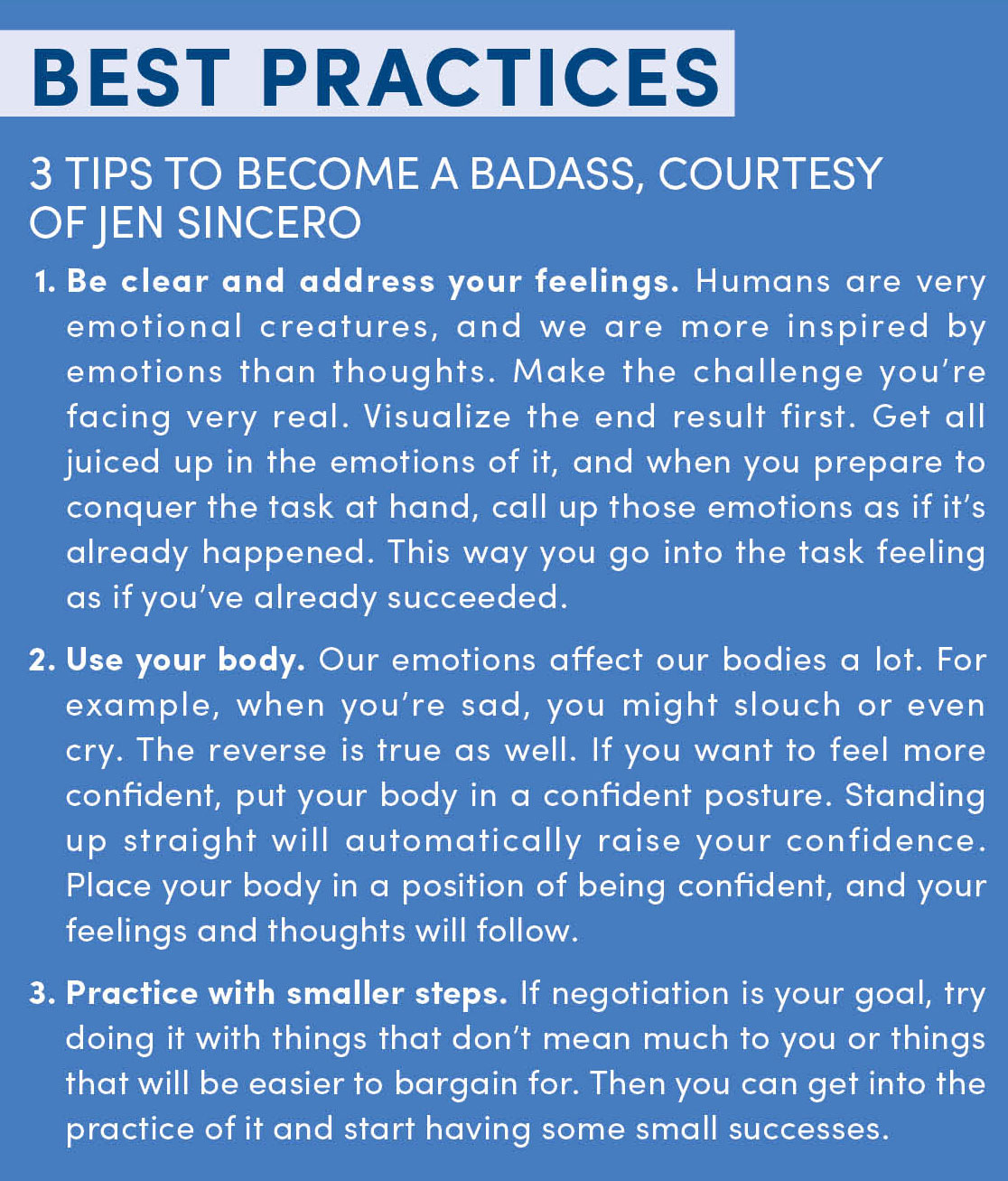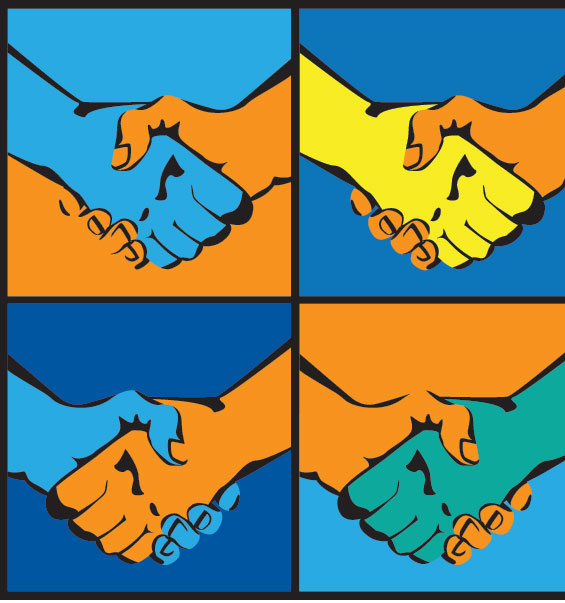Between bites of my chicken quesadilla and with no one else around to talk to, I ask the bartender about his day.
He spent the morning with his daughter. I ask how old she is. He grins as he tells me she just turned 9 months. He then proudly pulls out his phone to show me pictures of his wife and daughter at the park. I compliment his daughter’s smile and note that she has her mother’s eyes.
(To be honest, I can’t really tell whether the child has her mother’s eyes. I’m just trying to pander to him; I’m about to make my move.)
After I finish my dinner, I ask the bartender if I can get a beer for the happy hour price even though that special ended two hours ago. He tells me he doesn’t have the authority to do that, but he says my second beer is on the house. It’s my first successful deal on Day 3 of a weeklong mission to negotiate my every purchase. A crisp, cold Miller Lite is my breakthrough.
Related: 15 Negotiation Tips From People Who Always Get Their Way
I hate confrontation. I find it irritating when people cause a scene over something insignificant, so I take pride in being a laid-back guy. For example, on a recent grocery shopping trip, I was charged $1.29 for organic bananas when I had only bought 55 cents’ worth of ordinary bananas, but I didn’t say anything. I didn’t feel as though 74 cents was something worth fighting over.
To challenge my insouciant personality, my editor gave me this assignment: For seven days, I must make two attempts at negotiating the price or the terms of everything. This is my worst nightmare, I think as he tells me. The thought of confronting other people makes me sweat. Begrudgingly, and because it’s my job (and, you know, the insouciance thing), I accept the task.
***
In many countries outside of the U.S., haggling is the norm. In Latin America, for example, if you go to the farmers market to pick up fresh produce, the price tags aren’t necessarily fixed. In fact, there might not even be price tags. You ask for the price and make your counteroffer. This interaction might go back and forth several times, but eventually both parties settle on a mutually beneficial price. In the U.S., the consumer culture is different. We don’t go to a restaurant and barter with the server to pay less for a steak than the price on the menu. We negotiate significant purchases, such as a new car or home but not everyday items.
“Even modest improvement in our skills can significantly improve our well-being.”
Although bartering is not commonplace in the U.S., learning to haggle has value. “Negotiation is an important, recurring process in our professional and personal lives,” writes Harvard Business School professor Michael Wheeler in his book The Art of Negotiation: How to Improvise Agreement in a Chaotic World. “Even modest improvement in our skills can significantly improve our well-being. It can help us reach agreements that might otherwise slip through our fingers…. It can empower us to resolve small quarrels before they become major disputes.” Negotiating isn’t just good for saving money; it’s also a valuable skill in the workplace when asking for a raise, handling contracts or managing workloads, and even at home when figuring out who’s doing which chores or simply what movie to watch with a friend.
To prepare for my week of uncomfortable encounters, I brush up on the art of negotiating. I learn about the importance of using empathy and timing, listening intently and setting the right tone. Empathy and listening, for example, create an emotional connection that helps establish common ground, making it easier to lock in a deal. Employing the right timing and setting the proper tone lets someone know you’re willing to compromise and you’re not just demanding something beneficial for yourself.

I also prepare by speaking with Jen Sincero, author of You Are a Badass: How to Stop Doubting Your Greatness and Start Living an Awesome Life. I explain to her that what makes me most uncomfortable about this challenge is that I shy away from confrontation as much as possible. Sincero finds this interesting and asks me why confrontation scares me. “It’s important to get clear on what’s stopping you in the first place and then questioning that,” she advises. “Once you start questioning it, you disempower whatever the fear is.”
I’ve never thought I’m afraid of confrontation, but rather that it’s just something I don’t enjoy—like roller coasters. Sincero’s question makes me ponder what exactly I am afraid of. When it comes to haggling, I realize I do have some fears: I’m afraid I’ll be judged for being a cheapskate by asking for a lower price; I’m afraid I’ll be rejected and fail; and I don’t want to inconvenience anyone.
Related: How to Handle Fear and Failure Like a Boss
“Confidence is a muscle; it’s something you need to practice to strengthen that muscle.”
Sincero assures me I have nothing to lose and that my fears are only roadblocks I’m creating. “Everybody is born with confidence,” she says to encourage me. “It’s just a matter of peeling back the layers of unhopeful thoughts and beliefs that made you feel less than or not confident or not worthy or not capable. The truth is you are confident and totally capable of doing whatever it is you desire to do. Confidence is a muscle; it’s something you need to practice to strengthen that muscle.”
Feeling inspired, I set out for my week of negotiations. My first day of haggling is a complete failure—not because I don’t succeed but because I don’t even try. At lunch, I’m afraid I’ll hold up the line and anger the people behind me if I try to barter for my sub sandwich and soup. Disappointed in myself, I hand over my credit card and pay the full price for my meal. Buying groceries that evening, the same fear of irritating a long line of customers overtakes me, and I make no attempt to negotiate.
After going 0 for 2, I’m determined to make Day 2 a success. My first attempt of the day isn’t to lower a price, it’s to see if I really need to make a doctor’s appointment just to get a refill on a prescription. My attempt is immediately shut down over the phone. I make an appointment during my lunch break, determined to haggle some more.
I confidently walk into the doctor’s office and greet the receptionist with a smile. As she signs me in, I compliment her Dallas Cowboys watch, make small talk about the NFL and ask her about her plans for the upcoming holiday weekend. I’ve shown empathy and set the right tone. After the consultation with my doctor, I return to the front desk. I casually ask the receptionist if a follow-up appointment is the same cost as a normal appointment. She tells me they’re the same price, so I ask her if it’s cheaper if I pay with cash. It’s not. I’m now 0 for 3, but at least I tried this time.
Related: 7 Ways to Think Like a Negotiator
Calculated empathy with the bartender gets me a free beer on Day 3, but as the week goes on, I fail more than I succeed. I’m able to negotiate more free drinks and half off of a dinner, but I found no luck on at least a dozen other attempts.
At a grocery store, despite trying to show empathy by making small talk about the weather with the cashier, my efforts to bring the price down on a pound of chicken were met with a confused look before being politely told, “We can’t do that.” I handed over my card and took the loss.

And after searching for hotel rooms for a trip, I decide to call the hotel to haggle for a lower rate than what is available online. When Rachel, the hotel concierge, introduces herself, I refer to her by her name and ask her how she’s doing before beginning to negotiate. Now that I’ve attempted to create some connection, I tell her I’ve seen some good deals online, but I’d rather book through the hotel directly if it means I can get a better rate. Rachel’s offer is still higher than what I’ve seen online, and I tell her that. Rachel haughtily counters by telling me that if I don’t like the hotel’s offer, I can book a room elsewhere. I hang up the phone.
As my week of haggling wraps up, I discover my attempts to cut deals lowered my fears of being judged or of failing, which in turn increased my confidence. Regardless of whether I made a successful deal, the more I practiced, the more I pushed myself outside of my comfort zone. Not only do I now feel more self-assured, but I feel more social, too. I’m more inclined to strike up a conversation with a complete stranger or, even better, a cute girl at a bar.
I also realize this assignment wasn’t just about learning how to negotiate. I think about my interactions with the receptionist and the bartender. A fairly reserved person, I usually wouldn’t have these conversations. Normally I would have kept to myself and gone about my day. Now I’m talking to random strangers about their days, their families and their favorite NFL quarterbacks. I’m also more motivated to continue bartering (when appropriate).
With a week’s worth of practice under my belt and new-found confidence, I’m ready for my next challenge: negotiating rent on a new apartment. This I can handle.
Related: 7 Negotiation Techniques That Never Fail
This article originally appeared in the March 2017 issue of SUCCESS magazine.

